TL;DR
- The global shift toward sustainable packaging is accelerating, and for small businesses, it’s now a strategic priority, not a trend.
- In India, eco-friendly packaging is gaining momentum due to government regulations, rising consumer demand, and readily available compostable materials.
- Affordable solutions like compostable bags, recycled mailers, and minimalist packaging help brands reduce waste without increasing costs.
- Smart practices such as bulk shipping and carbon-neutral delivery lower emissions and enhance brand credibility.
- Greenworksbio offers certified, compostable packaging solutions tailored for small businesses ready to lead the sustainability movement.
The global sustainable packaging market, worth USD 270 billion in 2024, is set to reach USD 490+ billion by 2032 at a 6.1% CAGR (Statista). For small brands, adopting eco friendly packaging for small business is now a competitive necessity, not a trend.
Consumers are driving this shift, 74% are willing to pay more for products with eco‑friendly packaging (Trivium Packaging). This is fueling demand for sustainable ecommerce packaging and innovative eco friendly packaging materials for small business, such as compostable mailers, FSC‑certified recycled boxes, and reusable cloth bags.
Forward‑thinking entrepreneurs see sustainable packaging for small businesses as a way to cut waste, showcase brand values, and strengthen customer loyalty while staying ahead in an eco‑driven market. In this guide, we’ll explore creative, practical, and profitable packaging ideas to help your business go green without compromising on quality or customer experience.
Why Eco Friendly Packaging Matters for Small Businesses in India?
Eco friendly packaging for small business is now a necessity in India, driven by regulations, consumer demand, and market growth. According to Green View Research, India’s green packaging market generated a revenue of USD 19,511.2 million in 2023 and is expected to reach USD 35,003.4 million by 2030 at a 22.5% CAGR. Moreover, according to Global News Wire the biodegradable Packaging Market was valued at USD 89.57 billion in 2019 and is expected to reach a value of USD 121.38 billion by 2025. Government actions, such as bans on single‑use plastics, Extended Producer Responsibility (EPR) rules, and updated Ecomark standards, are accelerating adoption.
Consumer expectations are high. 60% of Indian shoppers prefer sustainable products, paying around 13% more for them (TOI). 83% consider packaging’s environmental impact important (ScienceDirect), and 9.7% are willing to pay more for sustainable packaging (PwC).
For small businesses, benefits include stronger brand differentiation, customer loyalty, premium pricing potential, lower shipping costs through lightweight materials, and readiness for future regulations.
India also has local strengths; biodegradable materials like PLA, bagasse, cornstarch, and waste‑to‑packaging innovations are readily available. The e‑commerce boom is further driving demand for recyclable, compostable, and lightweight shipping solutions.
In short, sustainable packaging offers compliance, market appeal, and operational savings, making it a strategic priority for India’s small businesses.
What are the Most Affordable and Effective Eco Friendly Packaging Ideas in 2025?
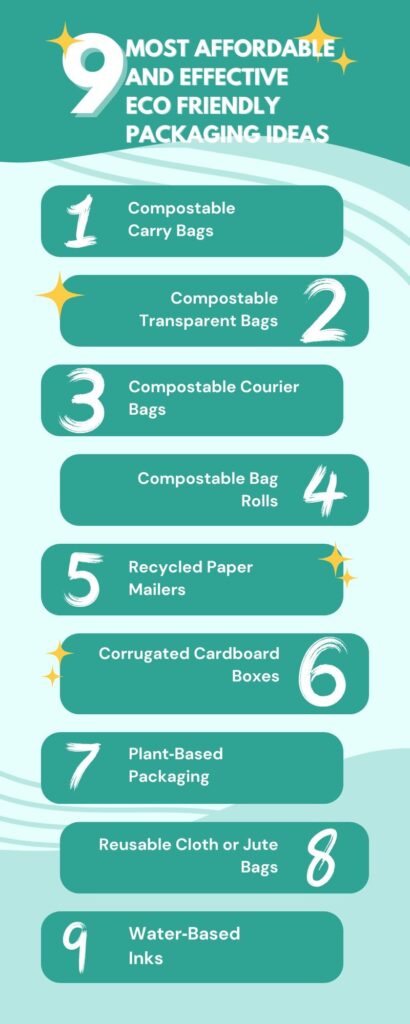
In 2025, small businesses can access eco‑friendly packaging solutions that are both cost‑effective and impactful. Here are some of the most practical options:
1. Why Choose Compostable Carry Bags Over Plastic?
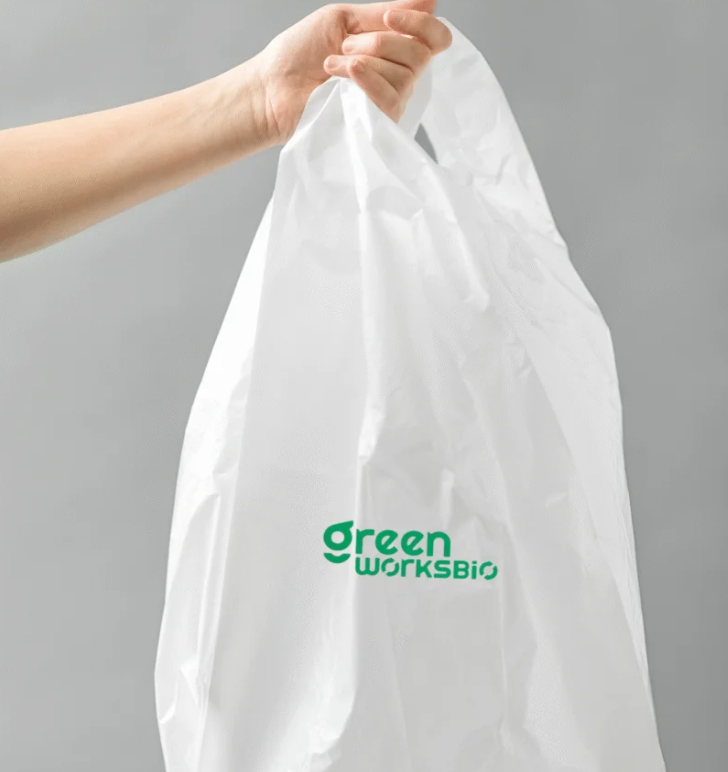
Compostable carry bags are a direct replacement for conventional plastic shopping bags, offering the same durability without the environmental impact. Made from plant‑based materials such as PLA and corn starch blends, these bags naturally break down in composting conditions, leaving no toxic residue.
Ideal for retail outlets, grocery stores, and event giveaways, they support both brand visibility and eco‑responsibility. Many businesses choose to customize these bags with their logo or eco‑certification marks, reinforcing their sustainability credentials in every customer interaction.
Start switching to compostable carry bags for your store; request a free sample today.
2. How Can Compostable Transparent Bags Boost Brand Appeal?
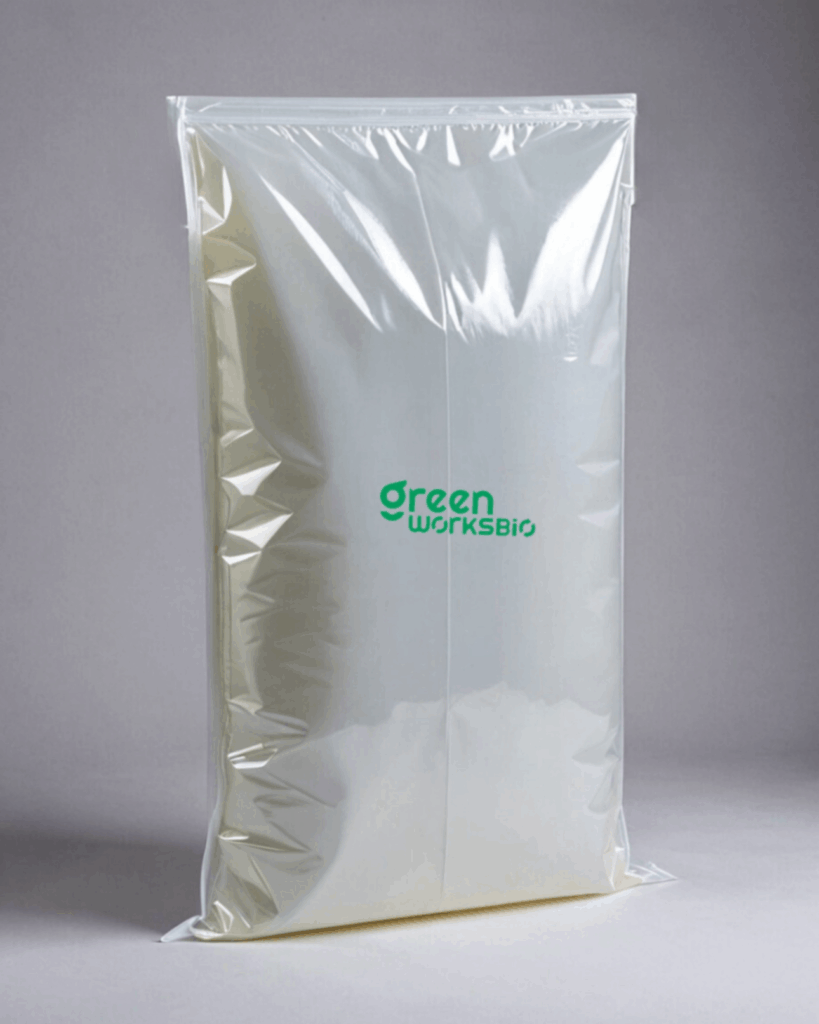
Clear compostable bags are perfect when product visibility is important, such as in apparel, food, or accessory packaging, while still maintaining eco‑friendly credentials. They are made from bio‑based materials that decompose in industrial or home composting conditions, ensuring no microplastics enter the environment.
These bags are strong, moisture‑resistant, and suitable for sealing, making them a sustainable choice for protective product wrapping. They can also be printed with eco‑friendly inks to align with brand identity.
Elevate your packaging game; explore customizable, clear compostable bags now
3. What Makes Compostable Courier Bags Ideal for E‑Commerce?
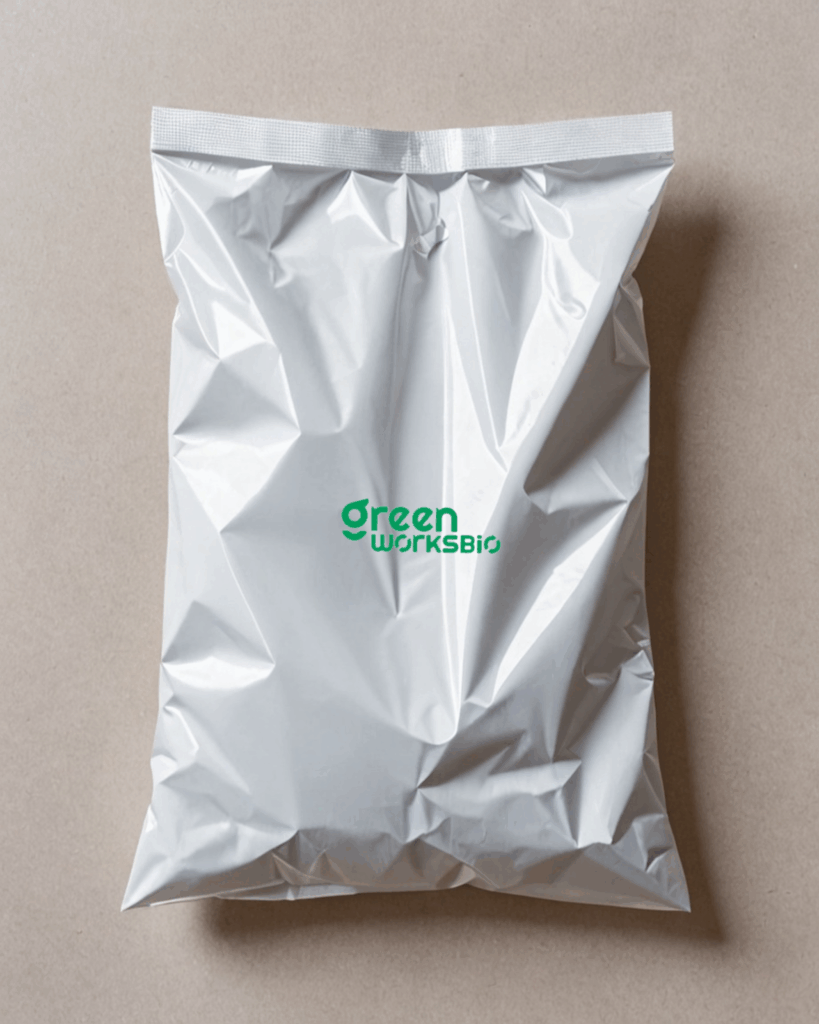
For e‑commerce brands, compostable courier bags offer robust protection during transit without relying on petroleum‑based plastics. They are waterproof, tear‑resistant, and suitable for various shipping requirements. Once used, customers can dispose of them in composting systems where they break down naturally.
These bags often feature self‑seal adhesive strips, making them easy to pack while saving time in fulfillment. Adopting compostable courier bags signals to customers that your online business prioritises sustainable delivery practices.
Make your shipping eco-friendly; try compostable courier bags in your next dispatch.
4. Why Are Compostable Bag Rolls a Versatile Choice?
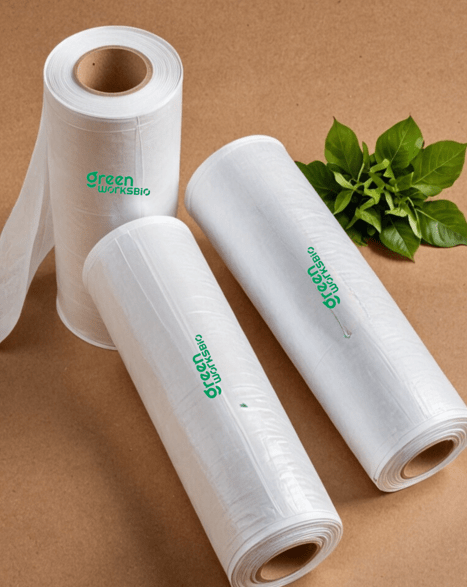
Compostable bag rolls are versatile packaging solutions that can be customized for a variety of uses, from product wrapping to shipping inserts. Their roll format allows businesses to cut bags to size, minimizing material waste and cost.
These bags are particularly useful for businesses with diverse product dimensions, as they adapt to different packaging needs. Being compostable, they help businesses reduce landfill contributions while still providing protective packaging.
Need flexibility in packaging? Order compostable bag rolls tailored to your product range.
5. How Do Recycled Paper Mailers Deliver Sustainability and Savings?

Recycled paper mailers are a low‑cost, high‑impact option for sustainable shipping. Made from post‑consumer recycled paper, they are both recyclable and biodegradable. They are lightweight yet sturdy enough for shipping apparel, accessories, and non‑fragile goods, reducing postage costs.
Many come with a peel‑and‑seal closure for convenience and can be printed with water‑based inks for branding. Opting for FSC‑certified mailers assures customers that your business sources materials responsibly.
6. How Can Corrugated Cardboard Boxes Support Sustainability?
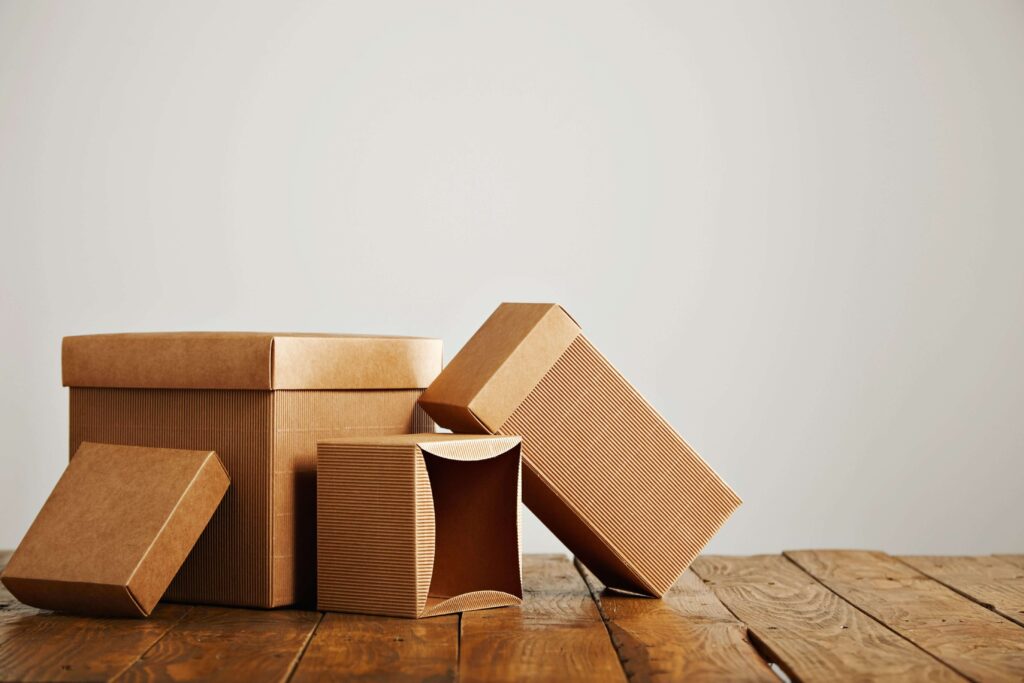
Corrugated cardboard boxes remain one of the most reliable shipping solutions. Fully recyclable and often made from recycled paperboard, they provide strength and protection for a wide range of products. Custom‑sized boxes help reduce excess filler material, lowering shipping costs and waste.
For extra sustainability, businesses can opt for unbleached kraft board and use water‑based inks for branding. These boxes can be reused multiple times before recycling, extending their life cycle.
7. What Makes Plant‑Based Packaging a Premium Eco Option?
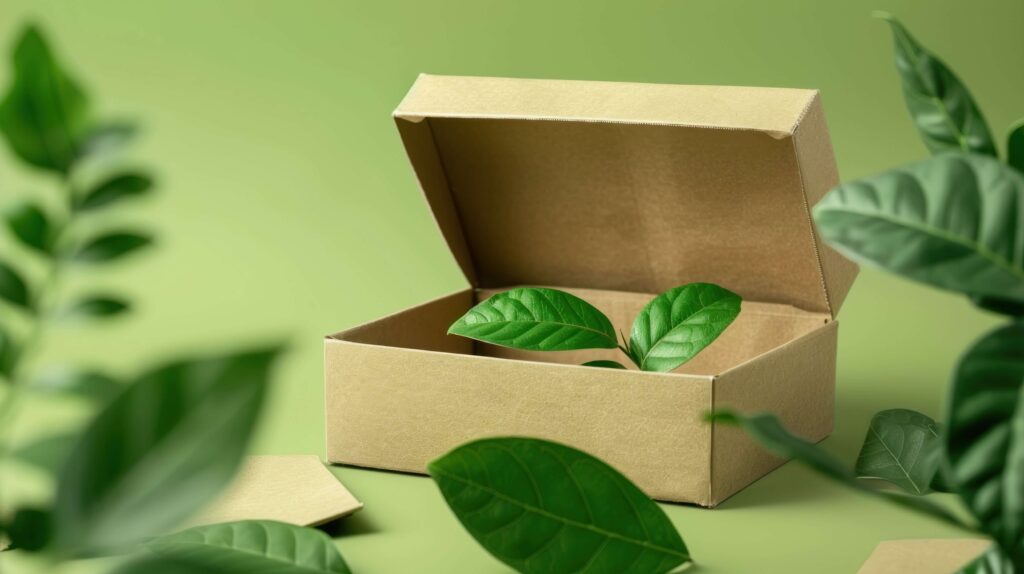
Plant‑based packaging materials, such as bagasse (a by‑product of sugarcane processing) and bamboo, provide durable, biodegradable alternatives to plastics. They are well‑suited for trays, containers, and product inserts.
These materials naturally decompose without leaving harmful residues and are sourced from rapidly renewable crops, reducing reliance on fossil‑fuel‑based resources. For small businesses in the food, cosmetics, or lifestyle sectors, plant‑based packaging offers a premium, eco‑aligned presentation.
8. How Do Reusable Cloth or Jute Bags Promote Brand Loyalty?

Reusable cloth and jute bags serve as both packaging and a long‑term brand marketing tool. Made from natural fibres, they are durable, washable, and biodegradable. Customers often reuse these bags for shopping or storage, keeping your brand visible in daily life.
Jute, in particular, is a fast‑growing crop requiring minimal pesticides, making it one of the most sustainable textile options available. These bags are ideal for boutiques, subscription boxes, or premium product ranges.
9. How Can Water‑Based Inks Make Your Packaging Safer for the Planet?

Water‑based inks offer an environmentally friendly alternative to solvent‑based inks, which release harmful volatile organic compounds (VOCs). They are biodegradable, non‑toxic, and suitable for printing on paper, cardboard, and fabric packaging. Using water‑based inks allows brands to maintain vibrant, high‑quality prints without compromising their sustainability commitments.
Want packaging that’s green and effective? See our list of smart eco‑friendly options.
How Can You Make Your Packaging More Eco‑Friendly in 2025?
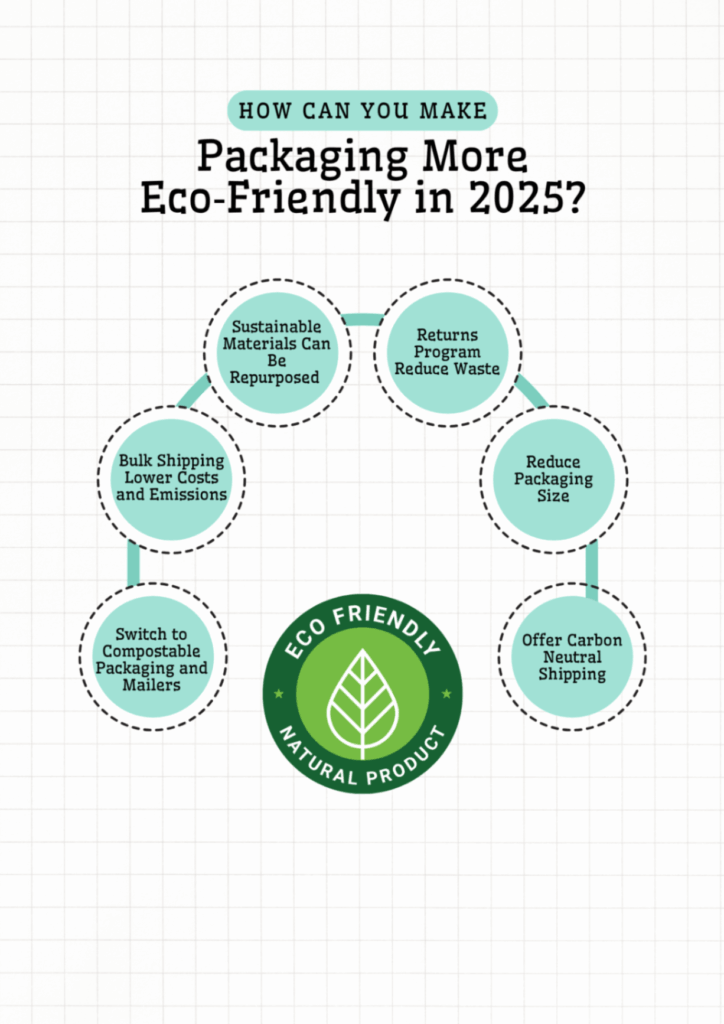
Adopting sustainable packaging solutions is no longer optional; it’s a necessity for brands aiming to reduce their carbon footprint and make a positive impact. These six practical tips will help your business choose the right packaging while balancing cost, compliance, and customer experience.
1. Why Switch to Compostable Packaging and Mailers?
Switching to compostable materials, such as compostable polymers, sugarcane mailers, or paper packaging, is a groundbreaking replacement for single‑use plastics. These friendly materials naturally break down, creating less waste and lowering your environmental footprint. Using compostable mailers also enhances your exceptional unboxing experience while reinforcing your sustainable business practices.
Patagonia, the outdoor clothing and gear brand, has become a benchmark in this space. By replacing traditional plastic polybags with compostable and recycled paper mailers, they’ve drastically reduced their plastic waste. This move not only aligns with their mission to “save our home planet” but also strengthens customer loyalty and sets them apart as a sustainability leader. (Source)
2. How Can Bulk Shipping Lower Costs and Emissions?
Consolidating shipments into fewer deliveries helps reduce the amount of waste generated from a lot of packaging and lowers carbon emissions from transportation. For rental companies or subscription services, bulk shipping is an ideal packaging solution that supports local economies and lower-cost operations, all while reducing the ecological footprint of each product delivered.
A real-world example comes from Vitality, an athleisure brand leveraging sustainable logistics. Their founder, Shipstad, shares:
“When customers use an in‑person Return Bar, there’s no need for packaging — returns are consolidated and shipped back in bulk using reusable containers. This not only helps Vitality save money and lower our carbon footprint through bulk shipping, but it also eliminates packaging waste.” (Source)
3. Which Sustainable Materials Can Be Repurposed by Customers?
Choose sustainable options such as kraft paper, reusable cloth bags, or poly bag alternatives that customers can repurpose. Custom packaging made from renewable resources not only extends the life of your packaging but also strengthens your brand’s sustainable practices. Brands in North America and beyond are using friendly options like algae ink for printing to minimise their environmental footprint while offering clear direction on reusability.
Nike’s ISPA line recently debuted a footwear box printed using algae-based ink, a bio-based and carbon-negative alternative to traditional petroleum-derived printing inks. This innovation not only aligns with their sustainability goals but also showcases how high-performance packaging can be eco-conscious. (Source)
4. How Does a Returns Program Reduce Waste?
Encouraging customers to return used containers creates less waste and promotes a closed‑loop system. Whether you’re a cosmetics brand wanting to maintain the quality of your wipes or a retailer offering refillable packaging, this is a perfect innovation partner approach. By integrating container returns into your packaging practices, you not only reduce waste but also support sustainable business practices that customers value.
5. Why Should You Reduce Packaging Size?
Choosing the right eco-friendly packaging size reduces excess materials and avoids the need for unnecessary fillers. Smaller shipping boxes and poly mailers save storage space, lower carbon emissions from transportation, and reduce overall costs. This approach is the next step toward lowering your carbon footprint while still ensuring product protection.
6. How Can You Offer Carbon‑Neutral Shipping?
Partner with a sustainable shipping solution that offsets carbon emissions through reforestation projects or renewable energy investments. This sustainable practice demonstrates a commitment to lowering your ecological footprint while still participating in global trade. By aligning with domestic manufacturing when possible, you can further reduce your environmental footprint and support local economies.
Want to make the switch to certified compostable solutions? Explore Greenworksbio’s full product range and start your journey toward sustainable packaging today.
Why Greenworksbio Is the Partner You Need for Eco-Friendly Packaging?
When sustainability is no longer optional, your packaging partner shouldn’t be either. Greenworksbio is India’s leading supplier of certified compostable biopolymer granules and finished products, designed to serve brands that are serious about lowering their environmental footprint and scaling responsible packaging.
Whether you need retail-ready compostable carry bags, tamper-proof courier mailers, or food-grade certified tableware, our solutions deliver industry-grade performance with a planet-first design. Backed by global certifications like ASTM D6400, EN 13432, and ISO 17088, our materials break down into compost, not microplastics, making them safe, traceable, and circular.
Ready to make the switch? Contact us today or visit greenworksbio.com to explore our full range.
Eco-Friendly Packaging: Small Step, Big Impact
Eco friendly packaging for small business is no longer optional, it’s a smart, strategic move. With growing consumer demand, tightening regulations, and accessible sustainable materials, small brands have both the tools and the opportunity to lead the change. From compostable mailers to minimalist design, the right packaging choices reduce environmental impact while boosting brand credibility and customer loyalty. Whether you’re just starting or scaling up, investing in sustainable packaging is a step toward long-term resilience, compliance, and profitability. Make the shift today, not just for the planet, but for the future of your business.
Frequently Asked Questions
Can switching to eco friendly packaging help my small business attract more customers?
Absolutely. Eco friendly packaging signals strong brand values and resonates with environmentally conscious consumers. Meeting customer expectations for sustainability can improve loyalty and set your business apart. Often, switching to sustainable packaging is seen as a key step toward broader sustainability success.
Which sustainable packaging materials are best for shipping delicate items?
Sustainable packaging materials ideal for shipping delicate items include recycled corrugated boxes, biodegradable packing peanuts, glassine bags, and sturdy paper packaging. These options offer excellent protection for fragile goods while reducing the environmental impact compared to conventional plastic and foam.
How can I ensure my packaging choices aren’t just “greenwashed”?
Avoid greenwashing by choosing packaging made from certified paper, verifying third-party sustainability certifications like FSC® or How2Recycle, and ensuring supply chain transparency. Setting and sticking to rigorous sustainable packaging goals ensures your actions are authentic and contribute to real environmental progress.

